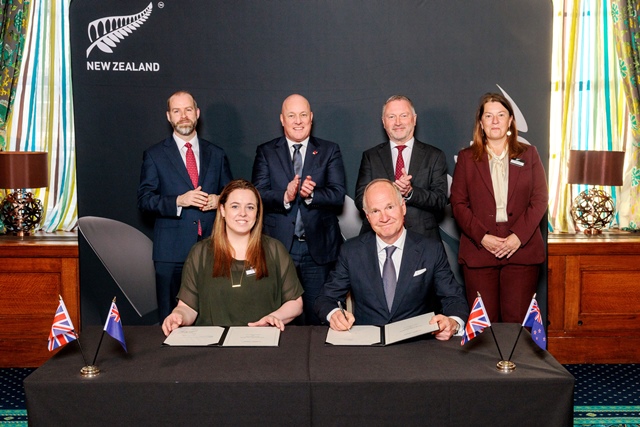GCAQE examines safety of passenger jet air supply systems

Image copyright Shutterstock
The GCAQE seeks to engage within the aviation industry to enhance safety and improve outcomes for flight crew and passengers.
Dr Susan Michaelis, a qualified air accident investigator and GCAQE Head of Research commented: “Aviation is the safest form of travel but it’s totally unacceptable that the industry continues to ignore vital safety recommendations and ignore the evidence that crew impairment is happening and some crews and passengers are suffering health effects as a consequence of these exposures.
"Many chemicals known to contaminate the breathing air supply are odourless and colourless and yet aircraft are flying with no form of contaminated air warning system. The introduction of contaminated air warning sensors and air cleaning technologies would enhance flight safety and the flying experience for thousands of crews and millions of passengers who fly every day.”
The breathing air supply on commercial jet aircraft, known as ‘bleed air’, is taken in-flight from the engines on almost all commercial passenger jet aircraft. The only exception is the Boeing 787 Dreamliner which uses a ‘bleed free’ architecture of electrical compressors. The use of electrical compressors ensure that the breathing air supply cannot become contaminated with engine oil or engine oil decomposition products.
On the 23rd December 2024, a Swiss International Airlines Airbus A220-200 (Bombardier C-Series CS-300), registered HB-JCD was performing flight LX-1885 from Bucharest Otopeni (Romania) to Zurich (Switzerland) with 74 passengers and five crew. The aircraft was in cruise flight at 40,000 feet and about 20nm east-northeast of Graz (Austria) when the crew decided to divert to Graz reporting smoke on board. The smoke is believed to have originated from a mechanical issue on one of the Pratt and Whitney engines powering the aircraft and linked to the subsequent oil contamination of the breathing air supply.
About 17 passengers and a number of crew needed medical assistance after the Swiss diversion to Graz, one was air lifted by helicopter to hospital. On the 30th December 2024, the airline reported that one of the flight attendant’s who had been onboard the aircraft had died.
The Graz event is not the first time an engine problem has led to smoke on board an aircraft. In August 2019, a British Airways Airbus A321-200, powered by two IAE International Aero Engines was in flight to Valencia (Spain) with 175 passengers and eight crew onboard when white/grey smoke appeared in the cabin and eventually led to a full evacuation of the aircraft.
Over the last 20 years, contaminated air events on aircraft have led to over 50 recommendations and findings made by 12 air accident departments globally, directly related to contaminated breathing air exposures on passenger jet aircraft. The British Aircraft Accident Investigation Bureau (AAIB) has twice called for contaminated air warning systems to be installed on all large passenger transport aircraft. However, these critical safety recommendations, endorsed by the GCAQE, have not been implemented by aircraft manufacturers and aviation regulators such as the FAA, EASA and the UK CAA. Had a warning system been fitted, it may have provided advanced warning of the problems that subsequently occurred.
The GCAQE has previously called on aviation regulators to mandate the installation and operation of effective ‘bleed air’ air cleaning technologies on all passenger aircraft but aircraft manufacturers and aviation regulators have failed to take such steps.
The first documented case of aircrew impairment from exposure to contaminated air dates back to the early 1950s on military aircraft. As the ‘bleed air’ is not filtered, the presence of synthetic jet engine oil decomposition products and hydraulic fluids in the occupied areas of the cabin/flight deck, that are sourced to the bleed air stream are typically referred to as a ‘contaminated air’ or ‘fume event’ within the industry. These are often described as having a dirty sock smell, the smell of one of the engine oil decomposition products.
Countless previous air measurements and swab tests have confirmed the presence of the organophosphates tricresyl phosphate (an ingredient of jet engine oils) and tribuytyl phosphate (an ingredient of hydraulic fluids) in the aircraft cabin.
Commercial and military engine oils and hydraulic fluids, contain organophosphate compounds and other toxins. Also, the fumes generated upon heating these products in the aircraft engines contain a very complex mixture of chemicals that the product data sheets warn should not be inhaled. The health effects reported by passengers and crews following a contaminated air event are often referred to as ‘Aerotoxic Syndrome’. A term many in the aerospace industry does not recognise.
A ground breaking medical protocol was published in 2023 to provide guidance for those exposed. Some within the aerospace industry argue that the levels of chemicals present are too low to cause any adverse effects or that crews are suffering from hyperventilation but presentations made at the recent 2024 Aircraft Cabin Air Conference in London, confirmed protein decoration in crews who had been previously exposed to contaminated air.
In 2021, NYCO, a French engine oil and lubricant manufacturer issued a patent for a new engine oil anti wear additive said to address the issue of 'Aerotoxic Syndrome’. In 2023, the US, SAE International approved a new reportedly ‘less hazardous’ jet engine oil manufactured by NYCO which is called 940 SE. In 2024, the 940 SE oil received military specification MIL-PRF-23699 approval and is listed in the US Dept of Defense QPD database, yet Pratt and Whitney the makers of the engine onboard the Swiss flight that diverted to Graz have not elected to qualify the use of this oil for their commercial jet engines.
GCAQE Spokesperson Captain Tristan Loraine stated: “Our deepest condolences go to the family of the deceased crew member. The aviation industry is said to be the safest industry in the world. However, passenger jet aircraft have no contaminated air warning systems and a new reported ‘less hazardous’ oil which could reduce the hazard, has not been qualified by engine manufacturers who know their products can and are contaminating the breathing air supply. Crews and passengers deserve better than this.”
The GCAQE is a registered not for profit organisation based in London and established in 2006.The GCAQE is the leading group in the world representing airline employees in relation to the issue of contaminated air on aircraft.
The medical protocol published in 2023 can be accessed through: https://www.gcaqe.org/health














